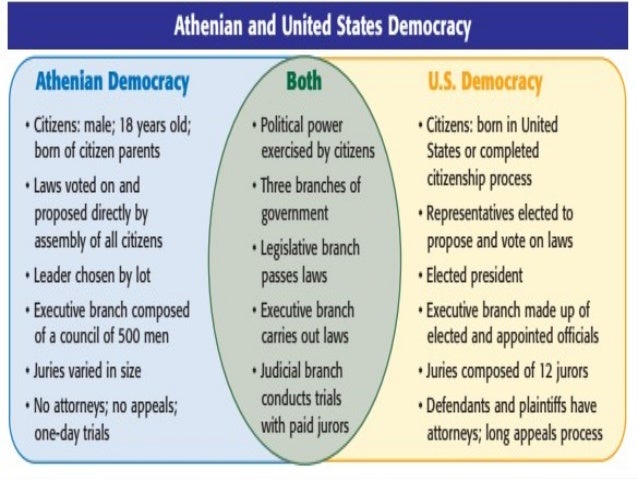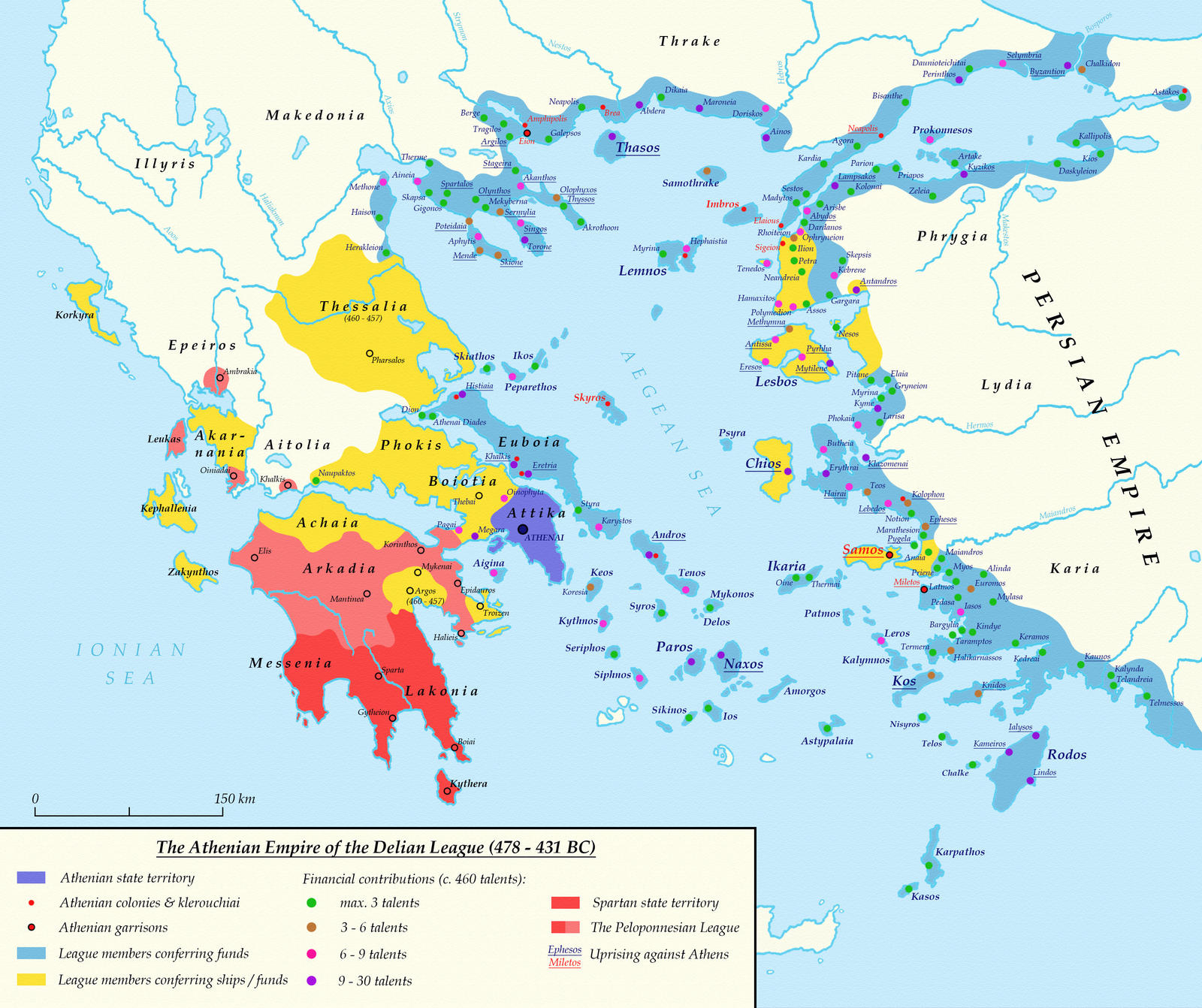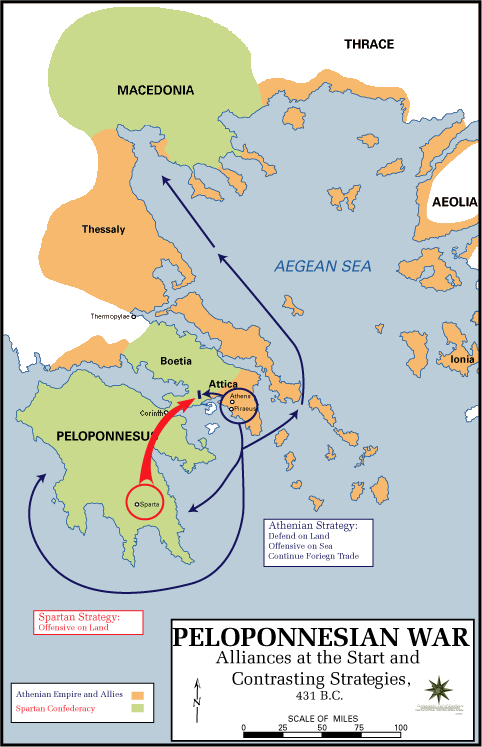Monday: 9/18/17
- Group test over Chapters 1 and 2
Tuesday: 9/19/17
- Group essay test over Ancient civilizations
Wednesday: 9/20/17
Chapter 5.3 - Democracy and Greece's Golden Age
- Key Terms and People
- Direct democracy - The people have the power directly without representation
- Classical art - The art of Ancient Greece and Rome in which harmony, order, and proportion were emphasized
- Tragedy - A play in which something bad happened to the main character (usually someone in power like a king, etc.)
- Comedy - A humorous play (Most of the time they were making fun of themselves or people in power)
- Peloponnesian War - A war against Athens and Sparta (Two big, Greek cities)
- Socrates - A Greek philosopher that founded western philosophy
- Plato - A Greek philosopher who believed that society should be made up of three groups; farmers, warriors, and the ruling class
- Aristotle - A Greek philosopher who was known for questioning the natural world, human belief, thought, and knowledge
- The Golden Age of Athens
- From 477-431 BC
- Came about after Greece defeated the Persians
- Drama, sculpture, poetry, philosophy, architecture, and science flourished
- Also known as the "Age of Pericles"
- Pericles was the leader of Athens at this time
- Led Athens in the Peloponnesian War
- Skillful politician, inspiring speaker, and respected general
- Pericles' Plan for Athens (461-429 BC)
- Three goals for Athens
- Strengthen Athenian democracy
- Hold and strengthen the empire
- Glorify Athens
- Three goals for Athens
- Goal #1: Stronger Democracy
- Increased the number of paid government jobs which benefited people who were not wealthy
- Instituted direct democracy
- Citizens rule directly and not through elected representatives

- Citizens rule directly and not through elected representatives
- Goal #2: Strengthen the Empire
- Helped establish and eventually lead the Delian league after the Persian Wars
- Alliance of Greek city-states to protect themselves from further attacks from the Persians
- Grew Athens navy which would help Athens strengthen the safety of its empire
- Started dominating other city-states which led to conflicts, especially with Sparta
- Helped establish and eventually lead the Delian league after the Persian Wars
Thursday: 9/21/17

- Goal #3: Glorify Athens
- Used money from the Delian League to buy gold, marble, and ivory to make Athens a beautiful city
- Used money from the Delian League to hire artists, architects, and workers to build buildings and sculptures
- Phidias was hired to build the Parthenon
- Greek sculptors focused on beauty, not realism (To make something look exactly like it actually is)
- Classical art focused on simplicity and being well proportioned
- Phidias' Parthenon
- A masterpiece of architectural design and craftsmanship
- Model of Parthenon in Nashville, TN
- Goddess Athena statue inside Parthenon
- Phidias made it of gold and ivory
- 30 feet tall
- She was the goddess of wisdom and protector of Athens
- Also did a statue of Zeus at Olympia
- Phidias Zeus was the ruler of Gods and Athena's father
- Greek Drama - Tragedy and Comedy
- A tragedy was a serious drama about common themes such as love, hate, war, or betrayal
- The hero usually was an important person and often gifted with extraordinary abilities
- A tragic flaw usually caused the hero's downfall, usually excessive pride
- Sophocles wrote Oedipus the King, a famous tragedy
- A comedy contained scenes filled with humor
- Playwrights often made fun of politics and respected people and ideas of the time
- Aristophanes was a famous writer of comedies
- The fact that Athenians could listen to criticism of themselves showed the freedom that existed in democratic Athens
- A tragedy was a serious drama about common themes such as love, hate, war, or betrayal
- The Start of the Greatest Subject in Recorded History
- History
- Herodotus pioneered the accurate reporting of events
- Thucydides believed that certain types of events and political situations recur over time
- Studying those events and situations would aid in understanding the present
- The approaches Thucydides used in his work still guide historians today
- The Peloponnesian War
- 431 - 404 BC
- Fought between Athens and Sparta
- Came about as a result of Sparta not liking Athens' growth of wealth and power in the area
- Athens was acting like a bully
- Sparta had a better army
- Athens had a better navy
- With the help of a plague (disease) that hit Athens, Sparta eventually won

Friday: 9/22/17
No 8th hour class today - Homecoming Schedule

Comments